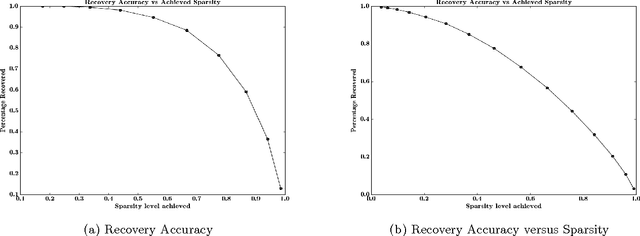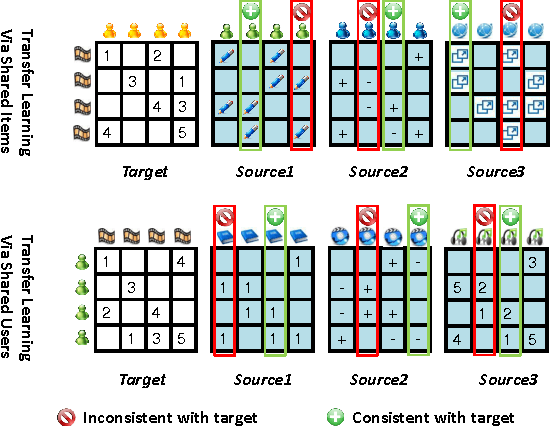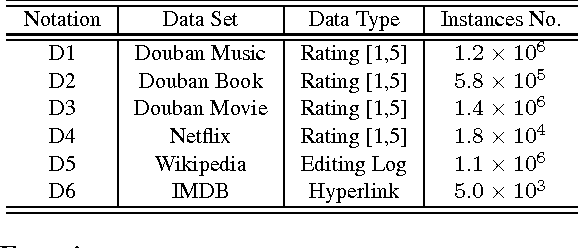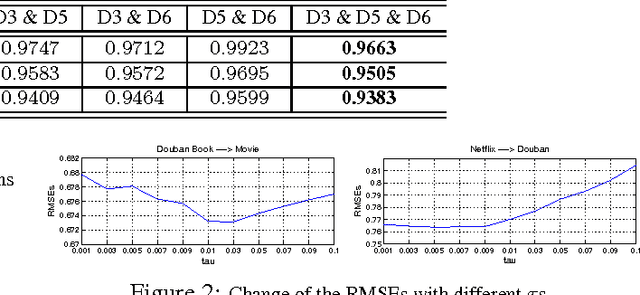Erheng Zhong
Geometry Aware Mappings for High Dimensional Sparse Factors
May 16, 2016

Abstract:While matrix factorisation models are ubiquitous in large scale recommendation and search, real time application of such models requires inner product computations over an intractably large set of item factors. In this manuscript we present a novel framework that uses the inverted index representation to exploit structural properties of sparse vectors to significantly reduce the run time computational cost of factorisation models. We develop techniques that use geometry aware permutation maps on a tessellated unit sphere to obtain high dimensional sparse embeddings for latent factors with sparsity patterns related to angular closeness of the original latent factors. We also design several efficient and deterministic realisations within this framework and demonstrate with experiments that our techniques lead to faster run time operation with minimal loss of accuracy.
Selective Transfer Learning for Cross Domain Recommendation
Oct 26, 2012



Abstract:Collaborative filtering (CF) aims to predict users' ratings on items according to historical user-item preference data. In many real-world applications, preference data are usually sparse, which would make models overfit and fail to give accurate predictions. Recently, several research works show that by transferring knowledge from some manually selected source domains, the data sparseness problem could be mitigated. However for most cases, parts of source domain data are not consistent with the observations in the target domain, which may misguide the target domain model building. In this paper, we propose a novel criterion based on empirical prediction error and its variance to better capture the consistency across domains in CF settings. Consequently, we embed this criterion into a boosting framework to perform selective knowledge transfer. Comparing to several state-of-the-art methods, we show that our proposed selective transfer learning framework can significantly improve the accuracy of rating prediction tasks on several real-world recommendation tasks.
 Add to Chrome
Add to Chrome Add to Firefox
Add to Firefox Add to Edge
Add to Edge